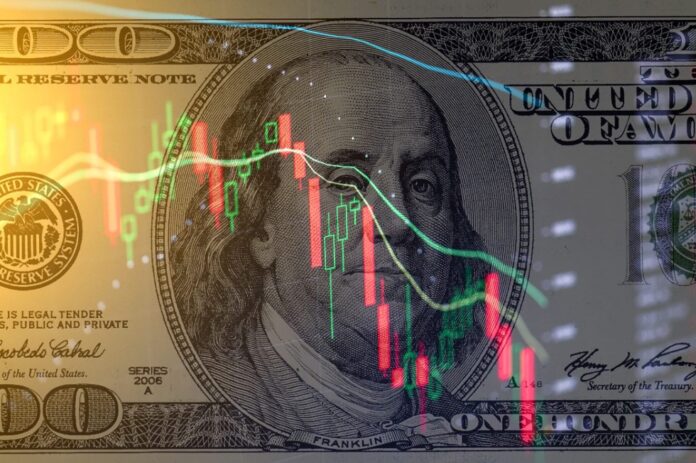
Understanding how the Consumer Price Index (CPI) works is critical in the fundamental analysis of financial markets.
It doesn’t matter if you trade Forex, indices, shares, or any other market, CPI announcements will have an impact on your trading. The CPI is used for measuring inflation. For a deeper understanding of how CPI is calculated and what it means, you can check out CPI explained by Axiory experts in the guide.
Inflation is a general increase in prices and a fall in the purchasing value of the currency. Governments and central banks do everything in their power to keep the inflation rate in the target range.
Importance of CPI in the stock market

High inflation is bad for companies, as high inflation means that they will pay higher prices for materials needed to produce goods and services. Eventually, consumers will be paying all the expenses. And consumers do not have endless pockets. When household expenditure is greater than income, families start saving money by spending only on the essentials. Selling products decreases when the recession starts.
If you are trading US stocks, CPI numbers posted by the US Bureau of Labor Statistics will be critical in your fundamental analysis.
It’s worth mentioning that negative inflation or deflation is not healthy for the economy either. Products and services are expanding every year, and for proper valuation, we need a healthy level of inflation. Developed countries usually consider 2-4% yearly inflation a healthy rage.
Importance of CPI in Forex market
Consumer Price Index has a direct impact on Forex markets. Let’s say you are trading EUR/USD and Europe has high inflation. High inflation is bad for the economy and the Euro’s value will likely drop.
CPI announcements do not have an immediate effect. It takes time, and usually, the reaction depends on how central banks counter high or low inflation rates. Short-term price fluctuations are unpredictable, and typically news traders try to take advantage of fast-moving markets. Position and swing traders spend more time on digesting CPI numbers than intraday and news traders.
How central banks react to CPI numbers

Central Banks are created for one purpose and one purpose only, to keep inflation within the target range.
Low inflation or deflation is bad for the economy, as the valuation of increased goods and services becomes harder. And high inflation is equally bad for the economy, as consumers have less to spend on goods and services. Or to be more precise, their money is losing purchasing power at a fast rate.
Sharp, volatile changes in inflation numbers are also undesirable, as businesses find it difficult to plan for the future in an unstable environment. A stable business environment is the backbone of every great economy.
Central banks react to increased and decreased inflation in various ways. When there is deflation (Supper uncommon) banks print more money by decreasing the interest rates. When inflation is higher than the target, central banks limit the money supply. For example, let’s say there’s high inflation in Europe, the European Central Bank ECB will increase interest rates, making taking out loans more expensive for regular Europeans.
Less money in the pockets of consumers means that the Euro will become more valuable in the short term. However, high-interest rates can damage the economy long term. Less money in the pockets means less spending. Less spending leads to less income for the companies. When companies lose the stream of income, they go out of business. Employees become unemployed, fewer products are being created and the economy suffers.
Why is CPI important for traders?

CPI is used to assess the cost of living in an economy and can have significant implications for traders, as it can affect financial markets and the value of financial instruments.
One way that CPI is important for traders is that it can be used as a measure of inflation. Inflation is the general increase in prices of goods and services over time, and it is typically measured by the percentage change in the CPI over a specific period. Traders may be interested in inflation because it can affect the value of their investments and the returns they earn. For example, if the CPI increases significantly, it may lead to a decrease in the purchasing power of money, which could reduce the value of fixed-income investments such as bonds. On the other hand, if the CPI remains stable or decreases, it may be more attractive to hold onto fixed-income investments, as they will tend to maintain their value over time.
Another way that CPI is important for traders is that it can be used as a benchmark for setting interest rates. If the CPI is rising rapidly, central banks may choose to raise interest rates in order to curb inflation and keep it in check. This can have a significant impact on financial markets, as higher interest rates may lead to a decrease in the demand for financial instruments such as stocks and bonds. On the other hand, if the CPI is stable or declining, central banks may choose to keep interest rates low, which may lead to an increase in demand for financial instruments and potentially higher prices.
Traders may also be interested in the CPI because it can provide insight into the overall health of an economy. If the CPI is rising, it may be a sign of economic growth and increased demand for goods and services. On the other hand, if the CPI is falling, it may be a sign of economic contraction and decreased demand. This information can be useful for traders who are trying to make informed decisions about which financial instruments to buy or sell.
In summary, CPI is an important economic indicator that can affect financial markets and the value of financial instruments in a number of ways. It can be used as a measure of inflation, a benchmark for setting interest rates, and a gauge of the overall health of an economy. As a result, traders should pay close attention to CPI when making investment decisions.











